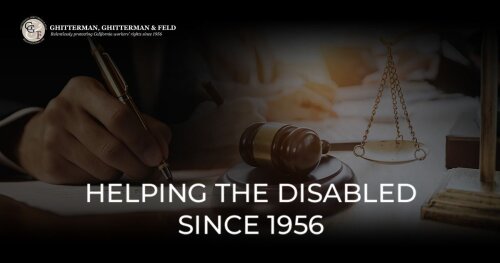Best Defamation Lawyers in Vermont
Share your needs with us, get contacted by law firms.
Free. Takes 2 min.
Or refine your search by selecting a city:
List of the best lawyers in Vermont, United States
About Defamation Law in Vermont, United States
Defamation in Vermont, United States, concerns harm to a person's reputation caused by false statements made by others. The law recognizes two primary types of defamation: libel, which refers to written or published statements, and slander, which pertains to spoken statements. Like most states, Vermont aims to balance the protection of individuals' reputations with the right to free speech under the First Amendment. If you believe you have been defamed, or if you are accused of defamation, understanding Vermont's legal framework is essential for making informed decisions.
Why You May Need a Lawyer
Defamation cases can be complex and highly sensitive. You may need a lawyer in situations such as:
- Someone has made false statements about you publicly or online, causing reputational harm.
- Your business has been affected by negative online reviews or slanderous comments that are untrue.
- You are accused of defaming someone else and are being threatened with a lawsuit.
- You suffered material or emotional damages that you believe resulted from defamatory statements.
- You are a journalist, author, or online content creator concerned about liability for statements you have made.
An experienced defamation lawyer can help assess your claim or defense, represent you in negotiations or court, and help protect your rights and interests.
Local Laws Overview
Vermont's defamation laws follow general U.S. legal principles but include specific local features. To succeed in a defamation claim in Vermont, an individual generally must prove:
- The defendant made a false and defamatory statement about the plaintiff.
- The statement was communicated to someone other than the plaintiff.
- The statement caused harm to the plaintiff's reputation or standing in the community.
- The defendant was at fault to at least some degree, such as acting negligently or with actual malice, depending on whether the plaintiff is a private or public figure.
Vermont also recognizes certain defenses to defamation, including truth, opinion, privilege (such as statements in court), and in some cases, retraction. Additionally, Vermont law sets a statute of limitations, usually one to three years, within which a claim must be brought. It's important to gather evidence quickly and consult an attorney if you believe you have a potential claim or defense.
Frequently Asked Questions
What is the difference between libel and slander in Vermont?
Libel refers to false damaging statements made in writing or through published media, including online. Slander relates to false spoken statements. Both can be grounds for a lawsuit if they harm your reputation.
Can I sue someone for defamation in Vermont if the statement was made online?
Yes. Defamatory statements made on social media, websites, or in other online venues are considered libel and can lead to legal action if the statements are false and damaging.
What if the statement was just an opinion?
Opinions are generally not considered defamation because they cannot be proven true or false. However, if an opinion implies an undisclosed false fact, it may be actionable.
How long do I have to file a defamation lawsuit in Vermont?
The statute of limitations for defamation claims in Vermont is typically three years from when the statement was made or published.
Are there defenses to a defamation claim in Vermont?
Yes. Common defenses include truth, consent, opinion, and privilege. Retraction of the statement in certain cases may also limit damages.
Does Vermont law treat public figures and private individuals differently?
Yes. Public figures must prove the statement was made with "actual malice" - that is, knowledge of its falsity or reckless disregard for the truth. Private individuals generally only need to show negligence.
Can businesses sue for defamation in Vermont?
Yes. Businesses can bring defamation actions if false statements harm their reputation or cause economic loss.
What kind of damages may be awarded in a defamation case?
Courts in Vermont may award compensatory damages for harm to reputation, lost income, and emotional distress. In some cases, punitive damages may be possible if there was malice.
Is it defamation if the statement was made to only one other person?
Yes. In Vermont, defamation requires only that the statement was communicated to a third party, even if it was just one person.
Should I contact the person who defamed me before taking legal action?
It can sometimes be helpful to request a retraction or clarification, but you should consult with a lawyer before contacting the other party to avoid jeopardizing your potential claim.
Additional Resources
Those seeking more information or guidance regarding defamation in Vermont may find the following resources helpful:
- Vermont Judiciary - Provides information on court processes, forms, and self-help resources.
- Vermont Bar Association - Offers lawyer referral services and legal information.
- American Civil Liberties Union of Vermont - Provides guidance on First Amendment issues and reputation-related legal concerns.
- Local legal aid organizations - Can sometimes assist with civil matters like defamation, especially if you meet income requirements.
Next Steps
If you believe you have been defamed or are accused of defamation in Vermont, consider taking these steps:
- Gather all relevant evidence, such as copies of the statement, communication records, and documentation of any harm suffered.
- Avoid further publishing or discussing the matter until you have received legal advice.
- Contact a Vermont attorney experienced in defamation cases as soon as possible, especially to ensure your case is filed within legal deadlines.
- Be prepared to provide your lawyer with all details and evidence related to your situation.
- Follow your attorney's guidance about contacting the opposing party or responding to further statements.
Legal counsel can help you understand your options, evaluate the strength of your claim or defense, and pursue the most effective resolution for your defamation issue.
Lawzana helps you find the best lawyers and law firms in Vermont through a curated and pre-screened list of qualified legal professionals. Our platform offers rankings and detailed profiles of attorneys and law firms, allowing you to compare based on practice areas, including Defamation, experience, and client feedback.
Each profile includes a description of the firm's areas of practice, client reviews, team members and partners, year of establishment, spoken languages, office locations, contact information, social media presence, and any published articles or resources. Most firms on our platform speak English and are experienced in both local and international legal matters.
Get a quote from top-rated law firms in Vermont, United States — quickly, securely, and without unnecessary hassle.
Disclaimer:
The information provided on this page is for general informational purposes only and does not constitute legal advice. While we strive to ensure the accuracy and relevance of the content, legal information may change over time, and interpretations of the law can vary. You should always consult with a qualified legal professional for advice specific to your situation.
We disclaim all liability for actions taken or not taken based on the content of this page. If you believe any information is incorrect or outdated, please contact us, and we will review and update it where appropriate.
Browse defamation law firms by city in Vermont
Refine your search by selecting a city.










